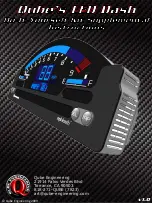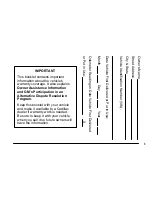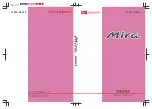
Ventilation
Front ventilation
▷
Thumbwheels to vary the temperature, ar‐
row 1.
Toward blue: colder.
Toward red: warmer.
▷
Lever for changing the air flow direction,
arrow 2.
▷
Thumbwheels for opening and closing the
vents continuously, arrows 3.
Ventilation levels
▷
Draft-free ventilation:
Thumbwheel, arrow 3, in level
: the air
current is fanned out.
▷
Maximum air volume:
Thumbwheel, arrow 3, in level
: the air
is partially fanned out and partially bundled.
This maximizes the air supply.
▷
Direct ventilation:
Thumbwheel, arrow 3, in level : the air
is bundled and can be directed to a specific
point.
Adjusting the ventilation
▷
Ventilation for cooling:
Adjust the vent to direct the air in your di‐
rection, e.g., if the vehicle interior is hot
from the sun.
▷
Draft-free ventilation:
Adjust the vent to let the air flow past you.
Ventilation in rear, center
▷
Thumbwheels to vary the temperature, ar‐
row 1.
Toward blue: colder.
Toward red: warmer.
▷
Lever for changing the air flow direction,
arrow 2.
▷
Thumbwheels for continuous opening and
closing of the vents, arrow 3.
Parked-car ventilation/
heating
The concept
The parked-car ventilation ventilates the vehi‐
cle interior and lowers its temperature, if nec‐
essary.
The parked-car heating warms the vehicle in‐
terior, making snow and ice easier to remove.
With the ignition switched off, the air is auto‐
matically routed to the windshield, to the side
windows, and into the footwell.
The systems can be switched on and off di‐
rectly or by using two preset departure times.
The switch-on time is automatically deter‐
mined based on the temperature. The systems
promptly switch on before the selected depar‐
ture time.
Operation takes place on the iDrive or the re‐
mote control.
Seite 157
Climate control
Controls
157
Online Edition for Part no. 01 40 2 909 877 - VI/13
Online Edition for Part no. 01 40 2 926 023 - XI/13
















































